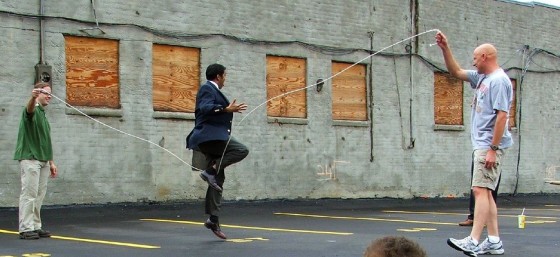Last week I put out a post about networking tips for new law school grads who are working on their job search while waiting on their bar results. A few days ago I got an email from a law grad who is in this professional no man’s land. She said she’s been trying to network with various lawyers via email and she hasn’t received a response from any of them.
Her email happened to come in while I had some down time and I responded with “give me a call right now.” I think that scared the hell out of her. But a few minutes later my phone rang, and I gave her some off-the-cuff suggestions. Here are some of the ideas I shared with her and some others I’ve thought of since then.
1. Make sure your email has a clear call to action. Are you asking a question, are you requesting a meeting, what do you want? If you’re looking for advice, be clear about the type of advice you’re looking for. This student was asking for “any advice” which is pretty broad. I suggested she might want to rephrase it and ask the next lawyer “What’s one thing you wish you knew at the beginning of your legal career?”
2. Be thoughtful about your subject line. One of the challenges facing people who send unsolicited emails is inducing the recipient to open the message. Think about what it might take to get through that lawyer’s impulse to delete any email from someone they don’t know.
3. Ask your career services office what lawyers comes to their events. Those lawyers have a track record of wanting to meet and help law students so they’ll likely help new grads too.
4. Tap into you network and ask a lawyer you know to introduce you to a specific person you want to meet that they know. You can also ask your contacts if the know the type of lawyer you want to me – i.e., a lawyer who does probate work at a small firm.
5. Look for lawyers who are active on social media, teach CLEs, and blog. I suspect these lawyers are more likely to talk to strangers via email.
6. Connect with lawyers you want to meet on social media and look for mutual interests. This could be your “in” with them. For example, if you’re a runner and a lawyer you want to meet is also a runner, ask them how they balance the demands of their job with their training schedule.
7. Social media could also give you a hook to get into their good graces. For instance, I’ve been following The Namby Pamby online since law school, which included posts about his preferred snacks. If he wasn’t an anonymous lawyer, and I lived in the same city and wanted to meet him, I would send him an email that said, “Can I have 15 minutes to bring you a box of Cheez-its and ask what a typical day is like for you?”
Being in professional No Man’s Land is hard. You may send out dozens of emails before you get a response. Focus on quality, not quantity. And don’t forget about the value of following up. The person may miss your first message in the shuffle of a busy day but your second message may peak their interest or remind them that they meant to respond to you.
And as this one recent law grad learned, if you send me an email, I’ll probably respond. You can also connect with me on Twitter, Facebook, LinkedIn, Google+, and/or YouTube.


![TransparencyCamp 2012 - #tcamp12 social network graph [1/2] by Justin Grimes from Flickr (Creative Commons License)](https://carterlawaz.com/wp-content/uploads/2014/08/network-560x257.jpg)